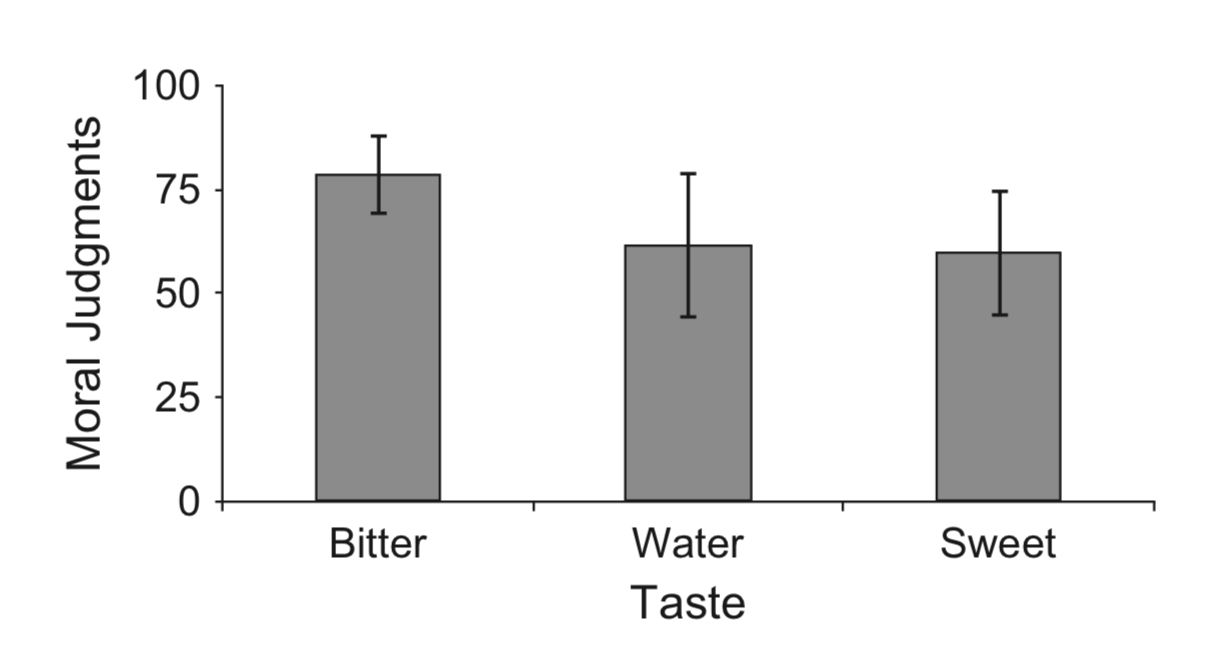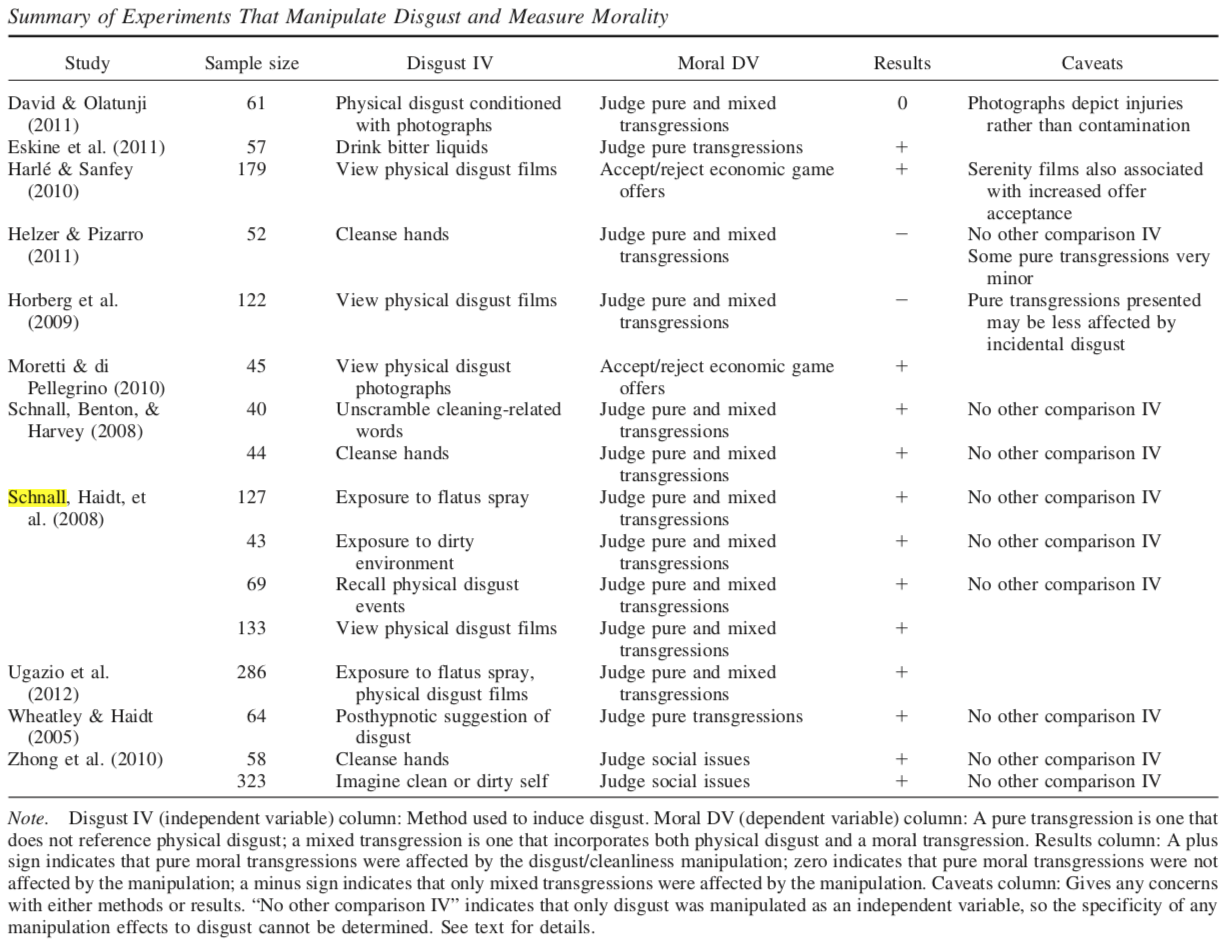Click here and press the right key for the next slide.
(This may not work on mobile or ipad. You can try using chrome or firefox, but even that may fail. Sorry.)
also ...
Press the left key to go backwards (or swipe right)
Press n to toggle whether notes are shown (or add '?notes' to the url before the #)
Press m or double tap to slide thumbnails (menu)
Press ? at any time to show the keyboard shortcuts
first time
Q: What do adult humans compute that enables their moral intuitions to track moral attributes (such as wrongness)?
Hypothesis:
They rely on the ‘affect heuristic’: ‘if thinking about an act [...] makes you feel bad [...], then judge that it is morally wrong’.
But is the Hypothesis true?
Prediction:
if you make people feel bad (/good) without them realising it, they will be more (/less) inclined to judge that something is morally wrong.
Evidence:
Schnall et al., 2008
✓
Has the study been replicated?
Not as far as I know.
Are there similar studies? If so, are the findings convergent?

Eskine et al, 2011 figure 1
✓
Are there similar studies? If so, are the findings convergent?
Has the study featured in a review? If so, does the review broadly support the findings of this study?

Chapman & Anderson, 2013 table 2
‘To date, almost all of the studies that have manipulated disgust or cleanliness have reported effects on moral judgment. These findings strengthen the case for a causal relationship between disgust and moral judgment, by showing that experimentally evoked disgust---or cleanliness, its opposite---can influence moral cognition’
Chapman & Anderson (2013)
Aside
Does disgust influencte moral evaluations?
- Manipulate Disgust and Measure Morality (Schnall, Haidt, et al., 2008)
Are moral violations disgusting?
- Manipulate Morality and Measure Disgust (Chapman et al., 2009)
✓
Has the study featured in a review? If so, does the review broadly support the findings of this study?
Q: What do adult humans compute that enables their moral intuitions to track moral attributes (such as wrongness)?
Hypothesis:
They rely on the ‘affect heuristic’: ‘if thinking about an act [...] makes you feel bad [...], then judge that it is morally wrong’.
But is the Hypothesis true?
Prediction:
if you make people feel bad (/good) without them realising it, they will be more (/less) inclined to judge that something is morally wrong.
Evidence:
Schnall et al., 2008
How to evaluate a hypothesis
Never trust a philosopher.
1. Is it really evidence?
a. Has the study been replicated?
b. Are there similar studies? If so, are the findings convergent?
c. Has the study featured in a review? If so, does the review broadly support the findings of this study?
2. Is the evidence sufficient to justify accepting the hypothesis?
Before we accept the Hypothesis
that the Affect Heuristic
explains moral intuitions,
we need a better argument ...